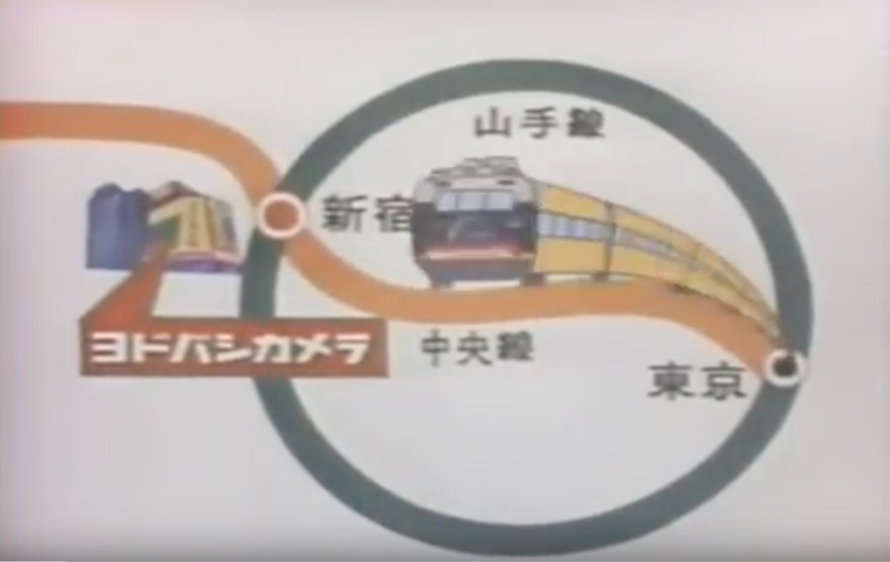Random Talk
(Pleaes try to pick up some words you know. You don’t need to understand whole sentences in Japanese.)
みなさんこんにちは、花子です。
Hi everyone, it’s Hanako.
みなさんは、どういう目的で日本語をべんきょうしていますか?
With what purpose do you learn Japanese?
私の妹の旦那さんのダニエルはスペイン人で、4年前から日本に住んでいます。
My sister’s husband, Daniel, is Spanish. He has lived in Japan for four years.
私のユーチューブビデオのJLPTN3からN5チャレンジに出ているのがそのダニエルです。
The person featured in my JLPT N3 to N5 challenge video is Daniel.
今は私の家から1キロ先に住んでいます。彼は二ヶ月前にやっとエンジニアのいい仕事が見つかりました。
He lives a the house 1 kilometer away from my house. He finally found a nice engineer job two months ago.
実はそれまでは、妹が働いて、ダニエルは子供達の世話と家事をしていました。
Actually, my sister (his wife) had a full-time job, and Daniel was taking care of their kids and the housework.
彼はスペインでは大手の石油会社でパイプの設計の仕事をしていました。
He used to work as a pipe architect at a well-known Spanish oil company.
会社の様子を聞いて私は驚きました。
I was surprised when I heard about his office.
日本人も少しはダニエルに英語を話すのかと思ったら、誰一人英語を話さないようです。
I thought his Japanese coworkers talk a bit in English, however, nobody speaks English at all.
それに、社内メールは、容赦のない難しい尊敬語、謙譲語、ビジネス日本語で書いたメールがダニエルに送られています。
On the top of that, they write e-mails to Daniel using difficult honorific, humble, and business language in Japanese.
日本人は外国人にでも簡単な日本語で書こうという気があまりないのだなと思いました。
I then thought that Japanese people really don’t try to write e-mails in Japanese that is easier for foreigners.
実はダニエルは他の日本語学習者と違って、会話は苦手なのに、読み書きは結構できるのです。
Actually, his Japanese is different from other Japanese learners. He is not good at speaking, however, he is good at reading and writing.
日本人の英語みたいです。
It’s like Japanese people who are not good at speaking in English but better at reading and writing.
難しいメールも理解して、返信も私たちの手伝いなしで上手な日本語を書いているので、驚きました。
I was surprised that Daniel understands emails which is written in difficult Japanese, and he replies in very good Japanese without our help.
ダニエルは、机に座って日本語を勉強するのが好きなようですが、あまり社交的なタイプではないので、話をするのが好きではありません。
Daniel seems to like learning Japanese at his desk, however, he does not like chatting with others since he is not the extroverted type.
今の会社で働いていて問題ないのは、リスニングと読み書きが上手だからだと思います。
I think there is no problem for him to work at his current company since he is good at listening, reading and writing
話すのはあまり得意ではないので、私もダニエルがそんなに読み書きが上手だとは気が付きませんでした。
Since he is not good at speaking, I assumed that he was not good at reading and writing either.
今はパイプ工場の建設現場では、日本人がダニエルを頼って仕事をしています
Currently Japanese workers depend on Daniel at the site where they are building a pipe plant.
みなさんも日本語勉強を頑張ってくださいね!
Good luck with your Japanese learning too!
Q) With what purpose do you learn Japanese?
masu + たい
I want to talk with Japanese people.
にほんじんと はなし たい です。
I want to go to Japan.
いく
行きたいです。
Situation. explanation から
A sentence that ends with から( because) explains the reason or the cause of a situation, a proposal , and so forth.
Ex.) 今日は早く寝ます。明日テストがありますから。
I will go to bed early. (Because) we have an exam tomorrow.
Let’s practice!
Let’s go by bus. (Because) taxis are expensive.
バスに乗りましょう。タクシーは たかいですから。
I won’t eat cake. (Because) I will gain weight.
ケーキを食べません。ふとりますから。
〜ましょうか
ましょうか ー Let’s~
Another way to use ましょうか ー Offering assistance “Let me do”
Verb (Stem form) + ましょうか
Ex.) It’s cold today, isn’t it?
今日はさむいですね。
Let me close the window for you.
まど を 閉めましょうか。
しめるーしめますーしめましょうか
Ex.) My bag is heavy.
私 の かばん は おもい
Let me carry it for you.
もつーもちますーもちましょうか?
かばんを もちましょうか?
Are there other times you offer assistance?
とるーとりますーとりましょうか?
Te-form Practice!
I am still wondering if you memorized how to form “te-form”, then, I found this te-form song in the practice page.
てフォームソング
P156 (B) Let’s sing te-form song! (Battle Hymn of the Republic)
1
あう あって まつ まって とる とって
よむ よんで あそぶ あそんで しぬ しんで
かく かいて けす けして いそぐ いそいで
みんな u-verb te-form
2
うつる って
むぶぬ んで
く いて
ぐ いで
(Repeat twice)
す して u-verb te-form
まるい 緑の山手線
真ん中通るは中央線
新宿西口駅の前
カメラはヨドバシカメラ
Then, let’s practice! This was your homework.
あるく (to walk) あるいて
すむ (to live) すんで
よぶ (to call) よんで
みる (to look) みて
する (to do) して
いう( to say) 言って
おぼえる (to memorize) おぼえて
つかう (to use) つかって
かりる (to borrow) かりて
べんきょうする (to study) べんきょうして
